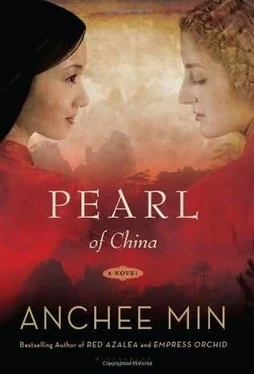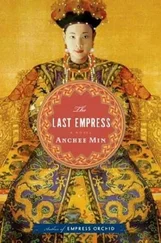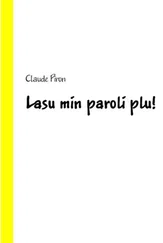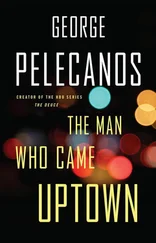I refused to talk to Hsu Chih-mo. I had done enough for him.
Confused, he said, “I’ll come back when you are in a better mood.”
After he left, I couldn’t escape the sound of his voice praising Pearl. “ Pearl and I are soul mates!” “The Good Earth is like no other novel I have ever read. It’s a masterpiece!” “It takes a humanitarian to be a good novelist.” “She denied that love has passed between us!”
Before I could say hello to Shanghai and to Dick Lin, I knew that I must settle my past accounts and say good-bye to Nanking. Yet the shadows of Pearl Buck and Hsu Chih-mo followed close upon me.
Dick promised me independence. He said that he would always be there for me if I needed him.
“You are coming to Shanghai,” he said in his letters, “and that is all that counts.”
Dick was confident that I would grow to love him.
I warned him that I was taking advantage of him.
“You don’t owe me anything” was his response.
Dick told me that Shanghai had been the red cradle ever since the Communist Party had been created in 1921. Although the party was still considered a guerrilla group, it was becoming the major opposition force against the ruling nationalist government. Dick played an important role in the party. He had become Mao Tse-tung’s chief adviser and he ran the party’s bureau of propaganda.
I was not terribly interested in the new world Dick described. I didn’t care whether or not the Communists would win China. What I cared about was having a place in Shanghai where I could tend to my wounds and try to start my life again. Dick made it convenient.
“You used to be a tiny creek and now you are part of an ocean.” Dick was as happy as a goalie after catching a ball.
The day of my departure was approaching. I wasn’t living a lie, yet I wasn’t living truthfully either. Pearl and Hsu Chih-mo had called a cease-fire and had finally become lovers. I took credit because I had helped. My home was their love nest. There, they were able to escape the prying eyes of the public. But I was wrong about myself. I was consumed by envy and jealousy.
Pearl knew me too well to feel comfortable with the situation. She even refused to show up when Hsu Chih-mo gave me a farewell dinner. On the one hand, I was comforted by the fact that Hsu Chih-mo didn’t know that I was in love with him. On the other, I suffered when he shared with me his feelings for my friend. “I am in love” was written all over his face. It hurt me, but Hsu Chih-mo couldn’t stop talking and I couldn’t stop listening.
Hsu Chih-mo was convinced that Pearl was more Chinese than he was. He was infatuated with her perspective, her Chinese habits, her love of camellias. He was especially thrilled when she cursed in Chinese. He loved “the Chinese soul under the white skin.”
Hsu Chih-mo told me that he used to play with peasant children when he was young. “My family were small landowners, so I was surrounded by peasant children. But I had no understanding of them when I played with them. I only knew that I was the young master and they were my slaves. They were not my equals as human beings. My family owned them or hired them. All Chinese schoolboys have the same attitude. When they become adults they look down on peasants. But Pearl believes that all spirits are equal before God. This respect for her subjects makes her work wonderful. In her, one hears the voice of a peasant as a human being.”
I drank and toasted with him.
Hsu Chih-mo confessed, “ Pearl makes me happy. I never know what she is going to say next. She’s brilliant, cunning, and funny. The mix of the Chinese and American cultures in her fascinates me always. I find myself looking forward to her thoughts.”
“What about love?” I asked.
“What about it?” He blinked.
“Does she… love like a Chinese woman?”
Hsu Chih-mo’s lips stretched into a big smile. “That is my secret.”
“Share with me a little, please.”
“I must go, Willow.”
“How dare you destroy the bridge after crossing the river!”
I imagined the hands she described, his hands, touching her. Pearl told me that she had woken up from her foolishness. I asked what she meant. She said that Lossing vanished from her mind the moment she was alone with Hsu Chih-mo. She was afraid she was becoming obsessed with Hsu Chih-mo. “I used to think that what I went through with Lossing happened in every marriage. I write about romance because it hasn’t existed in my life.”
“And romance is frightening?”
“I am afraid of what that knowledge will do to me.”
“So this may be more than just an affair?”
“I don’t know anymore. Hsu Chih-mo is a green refuge in the desert of my life. Because of him, I am more patient with Carol and tolerant of Absalom. I am no longer disgusted with myself. My despair has left me. I have even been thinking about adopting a little girl. In fact, I’ve already begun the process. And yet…” She stopped for a moment before continuing. “It is hard to see that Hsu Chih-mo and I would have a future together.”
“Because you are both married? Or because you are too different as individuals?”
“All I know is that I am in love with him, and that common sense has deserted me.”
“Hsu Chih-mo will continue to pursue you.”
“He doesn’t understand my responsibilities. He doesn’t understand that I will never be free because of Carol. He told me that he lost his own son at the age of five. He was able to dig himself out of his own sorrow. But I can’t. I am not like him. For Carol’s sake, I must stay with Lossing… for the money.”
“Will you give up Hsu Chih-mo?”
“Do I have a choice?”
“Your mother used to say that life is about being forced to make choices.”
We both went quiet. “I am watching life escape before my eyes,” she said.
The air was filled with the sweet scent of summer blossoms. I had come to the riverbank to say good-bye to the city of Nanking. I knew that under the cover of darkness, in the shadow of the magnolia canopies, Hsu Chih-mo and Pearl walked the streets of Nanking. Pearl had told me that the place they most often frequented was a local restaurant called Seven Treasures. Her favorite was Chin-kiang mushroom noodle soup.
Lossing had moved away again with Lotus. He had accepted a new position as the head of the agricultural department at a university in southwest China. Hsu Chih-mo was free to visit Pearl, although in secrecy. The love she could not let go of revived Pearl, and she changed. She began to pay attention to the way she dressed and she joined a dance class at the university. She went with Hsu Chih-mo to collect fresh camellias during the early spring. Inspired, Hsu Chih-mo published a poem titled “The Camellia Petals on My Pillow.”
Rumors spread and the public assumed that Hsu Chih-mo had gone back to his former mistress. The newspapers competed to predict Hsu Chih-mo’s next move.
I didn’t answer Pearl ’s request for a chance to say good-bye.
I felt that we had said enough to each other. I didn’t want to hear the name Hsu Chih-mo again. I left quietly. The pier was crowded. I boarded the steamboat and stood by myself. As the boat began to pull away, I got a surprise.
Pearl ran down the stone terrace toward the water.
I didn’t think she would be able to find me.
She slowed and finally stopped. Behind her, people waved, cheered, and shouted.
Then she found me. Her eyes. I knew she saw me because she stood completely still, gazing in my direction. She wore an indigo-colored Chinese outfit. Her hair was in a bun. The sun shone down on her. She looked like Carie.
I wished that I could shut my eyes.
The porters let go of the ropes. The steamboat began to pick up speed.
Читать дальше












